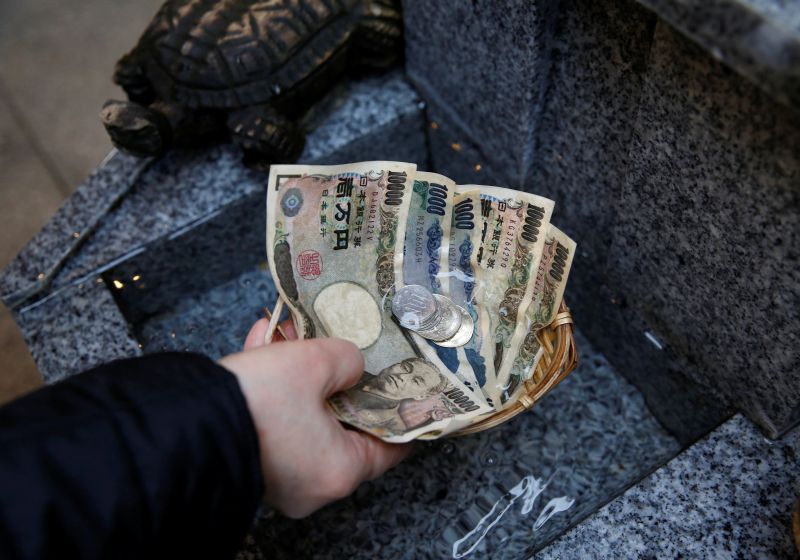SINGAPORE, Jan 2 — The US dollar eased against the yen today as caution prevailed on the first trading day of the new year on wider concerns about global economic growth, the US government shutdown and a slower pace of Federal Reserve rate hikes.
The safe-haven yen gained 0.1 per cent against the US dollar to 109.60 in early Asian trade. Trading volumes remain light as global markets reopened after the New Year's Day public holiday. Japanese markets remain closed today.
The yen has gained for three straight weeks as risk-off sentiment rattled financial markets.
However, while market participants remain concerned about the broader investment outlook, renewed hopes for a resolution to the US-Sino trade dispute have provided some cause for optimism. On Sunday, US President Donald Trump indicated that progress had been made toward a potential settlement of trade tensions which had plagued stock markets for much of 2018.
“It's still difficult to be strongly positive given all the uncertainties. Hopefully, there will be progress on trade talks but the market is cautious and that's benefiting the safe-havens such as the yen,” said Sim Moh Siong, currency strategist at Bank of Singapore.
“The yen's main driver over the last few sessions has also been the fall in U.S. yields...market thinks the tightening of financial conditions will make the Fed pause in 2019,” added Sim.
In December, the greenback weakened by around 3.8 per cent versus the yen.
Today, the US dollar index was marginally lower from Monday's close, fetching 96.08.
Rising interest rates drove the dollar's outperformance in 2018 with the Fed raising rates four times over the year, as unemployment remained at historically low levels and wage pressures rose.
However, the US dollar has been under pressure in recent weeks as investors grow increasingly nervous about a slowdown in the US economy and peak corporate earnings growth.
The US 10-year treasury yield fell by around 35 basis points over December to 2.69 per cent as bond traders bet that the Fed would not be able to raise rates in 2019 due to slowing economic momentum.
The euro was flat at US$1.1464. Traders expect the single currency to remain under pressure as both growth and inflation in the eurozone remain below the European Central Bank's expectations. The euro lost 4.4 per cent of its value versus the US dollar in 2018.
Elsewhere, sterling was marginally lower at US$1.2750. The British pound lost 5.5 per cent versus the greenback last year due to Brexit woes.
With three months until the United Kingdom is due to leave the European Union, British Prime Minister Theresa May's Brexit deal is floundering and traders expect sterling to remain under pressure.
The Australian dollar was down 0.18 per cent at US$0.7046 in early Asian trade, reflecting China's worsening growth outlook. Data on Monday showed factory activity in China, Australia's largest trading partner, contracted in December for the first time in more than two years. — Reuters






















